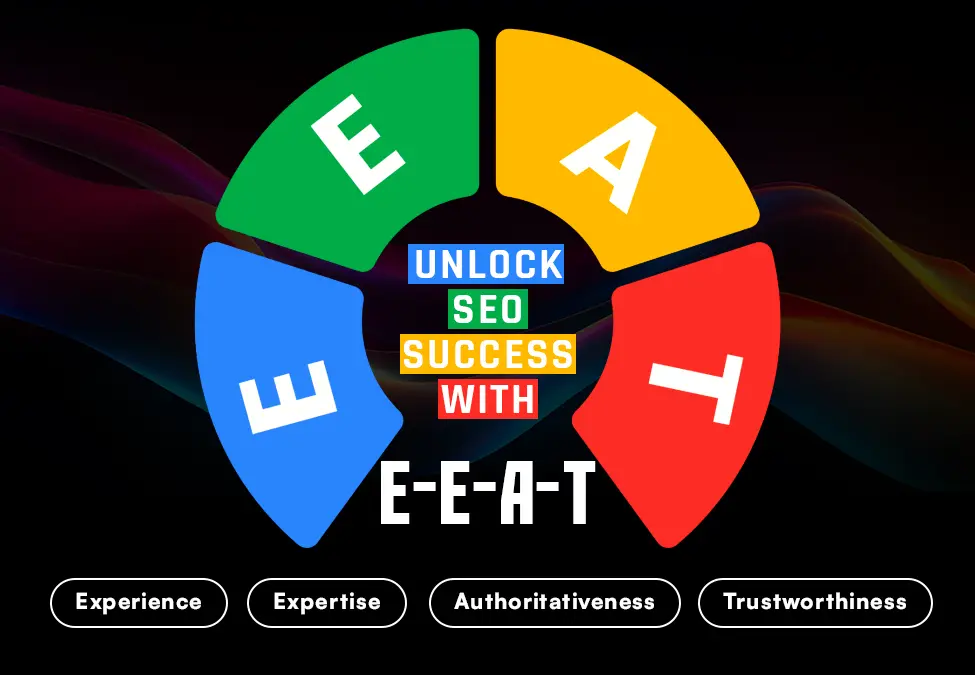What is this extra “E” all about? How can I ensure EEAT in my blog post? Since Google introduced this new framework, you must have struggled with many queries like these. Well, Google cares about user experience more than anything, so it comes up with the latest updates to improve the experience of its users.
And that’s why the extra “E” is about “Experience”.
Google updated its search quality evaluator guidelines (SQEG) one month after OpenAI introduced ChatGPT. SQEG indicates that Google prioritizes quality content that provides value to readers and writers.
You will learn about EEAT, the difference between EAT and EEAT, its impact on SEO, and steps to implement this SQEG into your blog posts. Let’s go through the blog and uncover the new secrets of ranking human-written content in the era of AI-generated content.
What Is the Difference Between EAT and EEAT?
First, you need to understand the difference between EAT and EEAT. This clarity will resolve your doubts and guide you in crafting SEO-friendly content according to new updates.
EAT: Expertise, Authoritativeness, Trustworthiness
EEAT: Experience, Expertise, Authoritativeness, Trustworthiness
As we mentioned in the blog’s introduction, Google focuses more on user experience; the brand proved this by adding one more E in the latest updates. Overall, you have to focus on providing high-quality content to users so they feel satisfied after reading it. This type of content improves user experience.
Does EEAT Impact Your SEO?
Yes, EEAT impacts your SEO. Although EEAT is not a direct ranking factor, it can highly affect your position on Google SERPs. Is it mean? When you follow EEAT, your content will definitely rank. No, it’s not a ranking formula, for sure.
The new framework is here to help human writers. Based on EEAT implementation, they can evaluate the quality of their search results. Although it is not a confirmed direct factor, still you neither rely on it completely nor ignore it a little bit.
Let’s examine all four ranking factors and understand exactly what Google wants writers to do to improve user experience.
E: Experience
Who’s experience is counted? The writer’s experience with the product will be counted.
For example, if you are writing a review about a watch, you must have used it; only then will your review be genuine. Around 60% of respondents agree they trust independent reviewers more than the company sites (marketinggog).
Suppose you are writing a blog on a travel topic, “10 places you should visit in Washington traveling with family”. If you have not physically visited these 10 places, you don’t have experience writing about it.
If anyone goes to Washington, considering the blog, and finds nothing like that, it will hamper user experience. It might happen that, slowly, people start disbelieving content posts on Google.
Incorrect information can harm the user who believes a writer’s words in the content. With topic examples, Google has discussed this clearly and thoroughly in the search rater guidelines.
However, ranking your blog post solely based on experience does not do it justice. You have to present the information creatively with authentic insights and unique opinions.
E: Expertise
Expertise is about your knowledge of the topic you are writing about, as it can affect the lives of people who take your advice seriously and use it in real life. If you are an expert in your field, you can advise, inform, and suggest others in your blog posts.
EEAT is closely related to Google’s Your Money or Your Life pages. These pages have topics on legal, medical, and financial advice. The information mentioned in the topics on YMYL can affect people’s lives negatively and positively.
For example, you are not a medical expert, yet you advise taking a particular pill for a fever in your content. This is a clear signal to Google that you lack expertise. Another example is that you have crafted content about steps to file a case against trespassing. The information can be wrong and affect the reader’s decisions if you are not an expert on law and legal topics.
A lawyer can discuss when, what, and how to tackle a particular case because they have experience and expertise. People also trust expert advice more than any other.
A: Authoritativeness
Gaining SEO success without authority seems quite difficult. To rank high on Google SERPs, you must also consider this factor along with the previous two: experience and expertise. Authority is your reputation; this means you are a go-to source for information.
For example, Statista is highly authoritative because it is a reliable source of statistics, research, and reports. Whenever you need market data, facts, figures, and stats, you choose Statista over other sites. Why? Because this website is dedicated to market statistics.
To boost your authoritativeness, you must earn high-quality backlinks from respected sites. This will grow your reputation within your industry and lead to more people choosing you for first-hand information.
Experience, Expertise, and Authority help create genuinely useful content. The content doesn’t sound like it was written solely to gain ranking. The August 24 Google Update also discusses the same.
T: Trustworthiness
Trust is the vital factor of all four, EEAT. Read a tweet by Rand Fishkin below.
If people have confidence in your website and content, they believe, follow, and buy. You must offer solutions to people’s queries by understanding their pain points and gaining their trust.
Would you buy a product from a site with no “About Us” page and helpline number? Or will you take financial advice from a writer who has not revealed their identity? No, right. Because you don’t trust them. That’s why many people don’t trust AI-generated content.
Nowadays, AI has become the leading disruptor of SEO performance on a global scale. The image below shows that 21% of respondents believe AI-generated content disrupted SEO performance.
These four ranking factors can help you stand out from the crowd or AI-generated content. They emphasize human-written content and experience, and Google also values content creator’s credentials.
How Does Google Evaluate EEAT Written Content?
Ok, you have written content considering EEAT. Now, how will Google evaluate your content? If you know how Google evaluates it, you can reform it effectively and make it more SEO-friendly.
Experience:
How does Google determine whether a writer is experienced? Google checks the author’s bio, authentic insights, behind-the-scenes experience, and first-hand experience with the subject matter experts. Moreover, Google tracks the author’s reputation, ratings, and the website where the article is published.
Expertise:
Google checks the author’s depth of knowledge related to the topic. For this, it checks the expertise or qualifications in the particular field. It also tracks engagement signals like time spent on the page and bounce rate.
Authoritativeness:
Google checks your content and website for backlinks from respected, high-quality sites and considers the website’s overall reputation. Additionally, how often are people linking to your content?
Trustworthiness:
Google ensures trustworthiness by checking whether your website is secure, content is accurate and trustworthy, and relevant certifications and credentials.
We have discussed each ranking factor separately. However, they are linked to each other. They are dependent on each other. If you miss any factor, experience, expertise, authoritativeness, or trustworthiness, you can’t rank.
Steps to Implement EEAT in Your Content
If you want to write content that ranks, following EEAT will increase the likelihood of ranking. However, there are many other things you have to consider for ranking. Cut to the chase: if a reader finds the content valuable, it will rank.
So, how do you make content valuable or high-quality?
Why would anyone read your blog when it doesn’t offer value and the reader feels unsatisfied after reading it? Google values user experience and satisfaction. Here is what it said in a Tweet.
You have to create high-quality content that considers EEAT guidelines. Here are the steps for it.
- Show off your credentials:
Let your expertise shine. Show your author bio page and highlight relevant qualifications, experience, and skills. Google and readers also appreciate the content when an expert is behind it.
- Build your credibility:
No one will trust you if you call yourself an expert without proof. You have to show your expertise. Proving you are an expert enhances credibility among your audience about your content. Cite authoritative studies and data from trusted sources, improving your content’s credibility.
Moreover, real-world experiences should be mentioned in the content. So, craft content that presents hands-on experience.
- Engage with your audience:
Know your audience’s interests and pain points to tailor your content accordingly. Use storytelling techniques to improve your content’s engagement. Gain trust by revealing your identity, qualifications, and other relevant skills.
- Incorporate trustworthiness:
Provide genuine information in your content and avoid misleading data. Be transparent and honest in your content. Present updated information with your unique writing style. Include respected sources, facts, statistics, and examples to enhance trust in your content.
- Boost your online presence:
You can implement EEAT on your site, making it a go-to source of information on a particular field. You can also get high-quality backlinks from reputable sites. Moreover, you should encourage positive reviews and boost the site’s authoritativeness.
Final Thought
EEAT is a vital ranking factor that affects SEO. Google prioritizes content that offers value to readers, and crafting such content requires considering Experience, Expertise, Authoritativeness, and Trustworthiness. Gain hands-on experience, present expert-level knowledge, become a first-hand source of information and knowledge and become a trustworthy platform. Overall, users should feel satisfied after reading your content, so they don’t have to search more for the same information.
Frequently Asked Questions
- What are the benefits of EEAT?
Content written with the EEAT factor is more likely to rank and offers a competitive advantage in the digital landscape. EEAT boosts content value and trust. - How do you optimize for E-E-A-T?
Check your content for experience, expertise, authoritativeness, and trustworthiness. Provide real-life examples, discuss the topic in-depth, make your site a high-quality source for particular information, and get backlinks from respected sites. - What is first E in EEAT?
The first E is about Experience in EEAT. You must have used the product yourself before writing about it. Similarly, if you are writing a travel blog, you must have visited the place you are writing about. Overall, you must Experience it first and then write about it. - Is EEAT a ranking factor?
EEAT is one of the ranking factors, but it is not a direct ranking factor. It increases the likelihood of the content ranking in SERPs. - What is new in SEO 2024?
In 2024, EEAT took a front seat, reshaping SEO strategies. Now, to make content SEO-friendly, you have to focus on gaining experience with the product, expertise on the topic, reputation, and user trust. These improvements are crucial to addressing the problems generated by AI-generated content.










